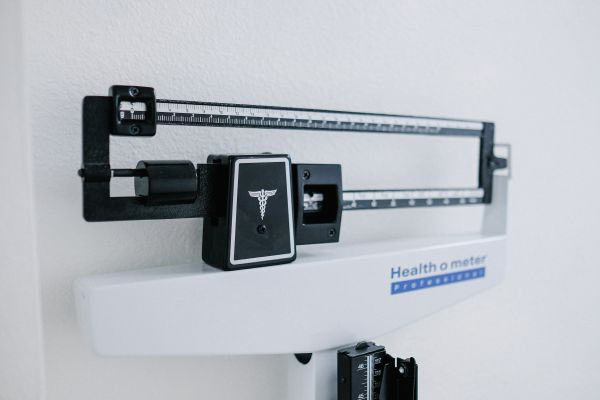What Is Orthorexia?
Orthorexia is a term that describes an obsession with healthy eating. People with orthorexia may adopt strict diets, cut out entire food groups, and develop anxiety about diseases or food purity.
Orthorexia is not an official psychiatric diagnosis, but it is increasingly recognized as a troubling behavior. The term was coined in the late 1990s by a physician named Stephen Bratman, who noticed that many of his patients were fixated on healthy or “clean” eating.
Some believe that orthorexia is distinct from other eating disorders like anorexia because orthorexia focuses on the purity of food consumed rather than avoiding weight gain. However, recent research shows that people with orthorexia often do prioritize weight loss over health when choosing the foods they eat, suggesting that orthorexia may mask a more traditional eating disorder. Perhaps because focusing on healthy eating is more socially acceptable than being fixated on weight loss, orthorexia may in part function to camouflage symptoms of a traditional eating disorder.
On This Page
Orthorexia is marked by a harmful obsession with eating healthy. People with this condition are fixated on the purity of their food and obsess over ingredients. They may restrict the type of food they eat by eliminating food groups, such as strictly adhering to vegan, gluten-free, dairy-free, or all-organic diets. These preoccupations can be extreme as some people with orthorexia spend hours preparing, categorizing, weighing, or ruminating over food.
It can be difficult to distinguish between a healthy awareness of how to nourish your body and an unhealthy obsession with food purity. One indication that someone may be developing orthorexia is that their eating behaviors begin to disrupt areas of their life outside of food consumption, such as their health, career, or relationships with family and friends.
For example, a person with orthorexia may make dietary choices that eventually lead them to stay home from work because they can’t prepare the foods they want at the office. Another may stop eating meals prepared by their partner, or refuse to eat together. Another may develop a nutritional deficiency or medical problem due to their eating habits.
Specific signs of orthorexia include:
- An obsession with consuming foods that are deemed healthy, nutritious, or clean.
- Fear and avoidance of foods that are not deemed healthy, nutritious, or clean.
- Rigid routines related to ingredients and food consumption.
- Excessive time spent thinking about and preparing meals.
- The removal of pleasure, enjoyment, and meaning from eating.
- The removal of relational elements from eating, such as communal meals.
- Food-driven disruption to daily life in domains such as health, career, and relationships.
- Indications of poor health such as:
- Nutritional deficiencies
- Low body weight for what is normal for a person’s height and age
- Low heart rate (even though this can also be associated with athleticism)
- Amenorrhea and infertility (in women)
- Osteoporosis
- Anemia
Anorexia nervosa involves an extreme obsession with weight loss, characterized by low body weight, restricted eating and/or exercise, and distorted body image. Orthorexia does not involve an obsession with losing weight and body image but rather an obsession with healthy eating and rules pertaining to the purity of food. In terms of food, people with orthorexia may fixate on the quality of food they eat while people with anorexia may fixate more on the portion size and caloric intake.
However, recent research shows that orthorexic tendencies are linked to concerns about body image and a preoccupation with weight loss, suggesting that the boundary between the two conditions may be blurrier than previously thought.
Orthorexia is likely caused by a complex combination of psychological, biological, and environmental factors. Orthorexia is also linked to a sense of perfectionism and a need for control, as is the case for other eating disorders.
Although the connection between social media and eating disorders is complicated, platforms like Instagram or TikTok may sometimes contribute to orthorexia. For example, a study published in 2017 in the journal Eating and Weight Disorders found that Instagram use was linked to increased symptoms of orthorexia. Influencers may promote “healthy eating” or a “healthy lifestyle” that followers adopt, but these diets may be severely restrictive and damaging.
Similarly, the diet, exercise, and wellness industries may play a role in some cases of orthorexia.
It’s difficult to determine the prevalence of orthorexia due to the gray area between a focus on healthy eating and orthorexia, as well as the gray area between orthorexia and anorexia. The condition was also described more recently than other eating disorders, and it’s a field of study that requires more research.
Still, one study, published in 2016 in the journal Eating and Weight Disorders—Studies on Anorexia, Bulimia, and Obesity found that the prevalence of orthorexia in the U.S. is less than 1 percent. A review study published in 2022 in the journal Children found that the prevalence of orthorexia among youth and young adults may be as high as 27 percent. However, there was high variability in estimates between the different studies.
Orthorexia can be difficult to detect and treat, both as an individual with the condition and as a therapist or doctor trying to identify it. It may be confused for healthy eating, or even praised since society reinforces the virtues of healthy eating.
For those struggling, the first step in addressing orthorexia is developing an awareness of genuinely healthy and unhealthy eating. A person can explore this by reflecting on how they approach food and eating and how this plays out in other realms of their life.
- Is a preoccupation with the health of food interfering with relationships?
- Have others questioned the behavior?
- Is the idea of eating 'non-healthy" foods concerning?
- Are physical symptoms present such as loss of bone density, amenorrhea or infertility in women, hair loss, low heart rate, low energy, poor concentration, and irritability?
Treatment for orthorexia, as for other eating disorders ideally involves a collaborative approach between a therapist, nutritionist, and physician. Treatment encompasses several interventions. The person may be treated for any medical problems that emerge, as well as psychological challenges and distorted beliefs related to food and health in therapy. They may gradually reintroduce foods that they previously feared or restricted. They may develop coping skills such as meditation and deep breathing. They may explore misinformation about clean eating and learn accurate information about nutrition and how to develop healthy meal plans. They may learn the benefits of intuitive eating and develop a healthy relationship with food. They may be treated for any co-occurring conditions such as obsessive-compulsive disorder, anxiety, or depression.
Treatment may take time, and different people may benefit from different approaches.
Given that food plays a central role in our lives, and that some may struggle with unhealthy foods, it can be difficult to strike the right balance between eating well and not becoming obsessive. A key to striking the right balance is developing a healthy relationship with food.
One component of a healthy relationship with food is internal regulation—paying attention to biological signals of hunger and satiety and the balance of foods that allow one to feel healthy and full. This awareness and an internally driven approach stand in contrast to cycling through fad diets or weight loss trends.
Greater awareness of the body’s needs, and eating for satiety and enjoyment, can help create a more peaceful relationship with food and body image.














